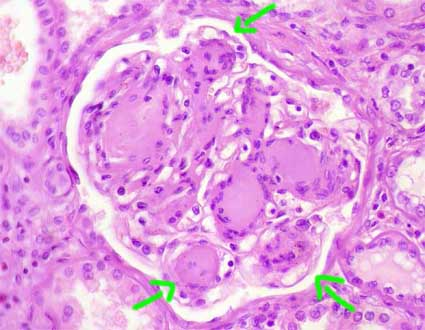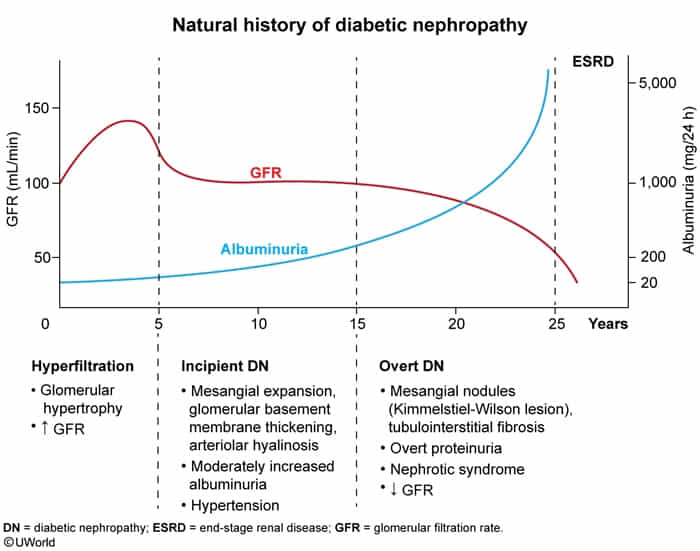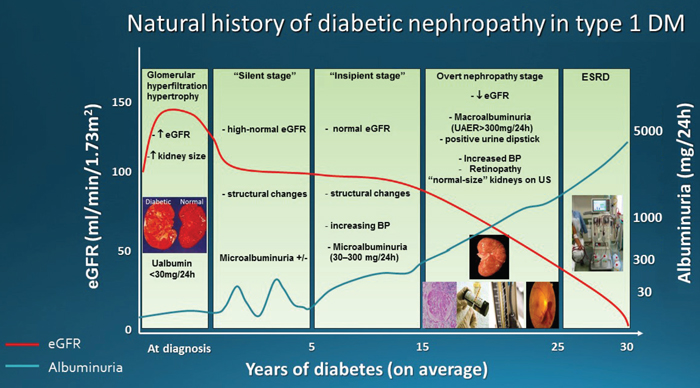Epidemiology
major cause of ESRD
- Type 1 DM: Diabetic kidney disease usually occurs approx. 10 years after diagnosis.
- Type 2 DM: may be present at the time of diagnosis
Etiology
Pathophysiology
Chronic hyperglycemia → glycation (also called non-enzymatic glycosylation or NEG) of the basement membrane (protein glycation) → increased permeability and thickening of the basement membrane and stiffening of the efferent arteriole → hyperfiltration (increase in GFR) → increase in intraglomerular pressure → progressive glomerular hypertrophy, increase in renal size, and glomerular scarring (glomerulosclerosis) → worsening of filtration capacity
- Increases sodium resorption in the proximal tubule by the sodium glucose cotransporter, leading to decreased sodium and fluid delivery to the macula densa and subsequent activation of the tubuloglomerular autoregulation system.
- Subsequent dilation of the afferent arterioles and constriction of the efferent arterioles increases intraglomerular capillary pressure, resulting in an increased glomerular filtration rate (hyperfiltration) and glomerular hypertrophy
Pathology
- Mesangial expansion
- Glomerular basement membrane thickening
- Glomerulosclerosis (later stages)
- Diffuse hyalinization (most common) or
- Pathognomonic nodular glomerulosclerosis (Kimmelstiel-Wilson nodules):

- Glomerular capillary hypertension and hyperfiltration → increase in mesangial matrix → eosinophilic hyaline material in the area of glomerular capillary loops
- Can progressively consume the entire glomerulus → hypofiltration (↓ GFR)
Clinical features
- Patients are usually asymptomatic in the early stages; some may report foamy urine.
- In the later stages, clinical features of chronic kidney disease (e.g., hypertension, volume overload) may be present.
Diagnostics
- eGFR can increase in early stage (hyperfiltration), but eventually decline in CKD stage.
- Rapidly progressive albuminuria


Treatment
Glycemic control and antihypertensive treatment can delay the progression of diabetic kidney disease.